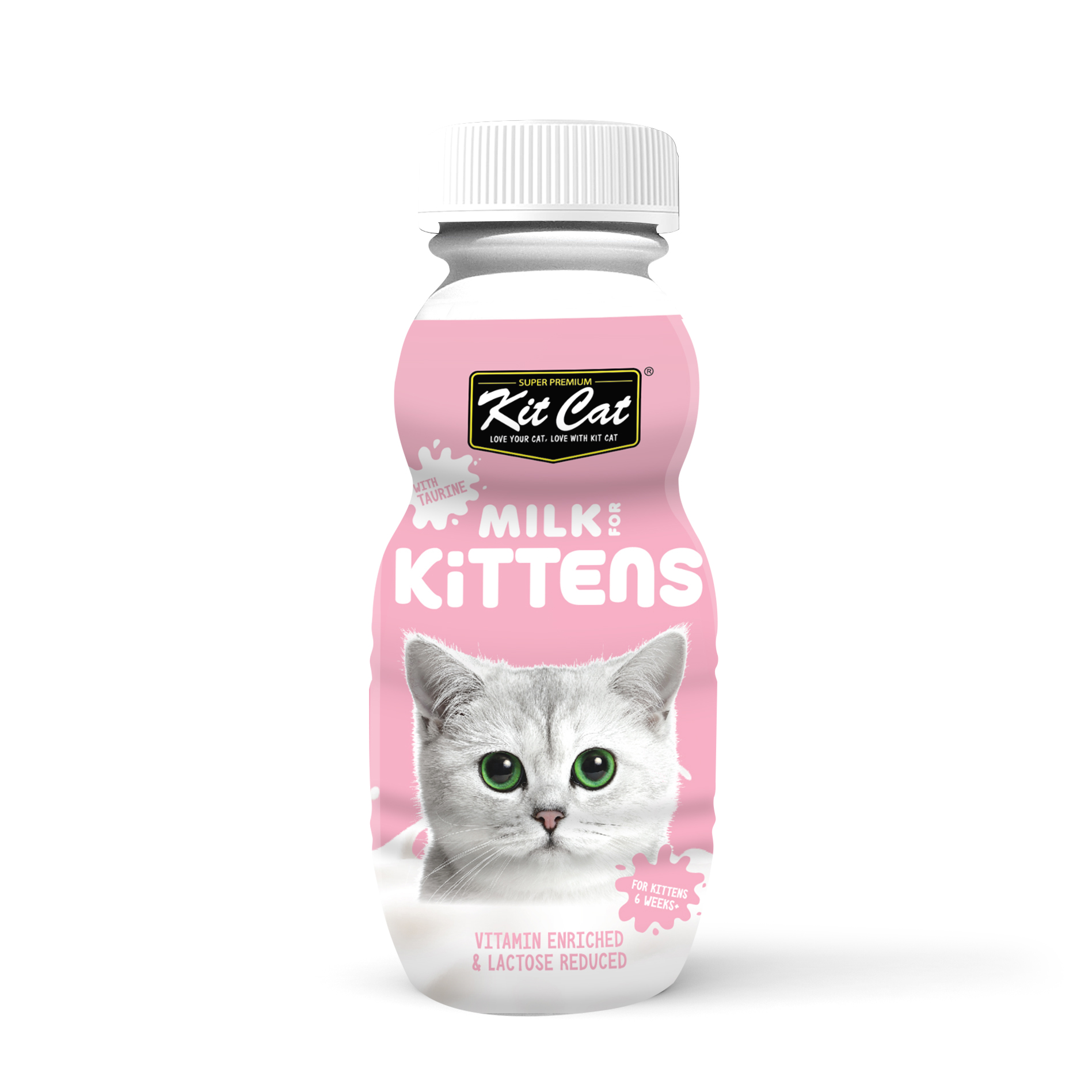Kitten Milk Replacers: Is Evaporated Milk Safe for Baby Kittens?
The tiny mewls of a newborn kitten tug at the heartstrings. Finding yourself responsible for orphaned or abandoned kittens can be daunting, especially when it comes to their delicate dietary needs. One common question arises: Can you feed baby kittens evaporated milk? While it might seem like a convenient pantry staple in a pinch, the answer is more nuanced than a simple yes or no.
The instinct to nurture often leads to well-intentioned but potentially harmful choices. Evaporated milk is not a suitable long-term substitute for mother's milk or specifically formulated kitten milk replacer (KMR). While it may seem similar to milk, evaporated milk lacks essential nutrients crucial for a kitten's healthy development.
Kittens, like all mammals, rely on their mother's milk for a specific balance of fats, proteins, carbohydrates, vitamins, and minerals. These nutrients are precisely calibrated to support their rapid growth and development in the first few weeks of life. Evaporated milk, while containing some of these elements, does not replicate the precise nutritional profile required for optimal kitten health.
The question of using evaporated milk for kittens often stems from a time when readily available commercial kitten milk replacers were less common. In the past, homemade formulas, often including evaporated milk, were sometimes used as a last resort. However, with the advancement of veterinary nutrition, specially formulated KMRs are now widely accessible and provide the ideal nutritional balance for growing kittens.
So, while evaporated milk might seem like a quick fix, it can lead to nutritional deficiencies, digestive issues, and ultimately, compromised health for vulnerable kittens. The long-term risks significantly outweigh any perceived short-term convenience.
Feeding a kitten the wrong type of milk can lead to diarrhea, dehydration, and other health problems. This is because kittens' digestive systems are delicate and not designed to process cow's milk or evaporated milk efficiently. These types of milk can cause an imbalance in the kitten's gut flora, leading to digestive upset.
Kitten milk replacer (KMR) is designed to mimic the nutritional composition of mother's milk, providing the essential nutrients kittens need for healthy growth and development. KMR is readily available at pet stores and veterinary clinics. It is typically sold in powder form and needs to be mixed with water according to the package instructions.
One potential benefit of using appropriate kitten milk replacement is ensuring proper growth and development. A second benefit is a healthy digestive system, minimizing diarrhea and other digestive upsets. Thirdly, using KMR minimizes the risk of long-term health complications arising from nutritional deficiencies in early life.
Advantages and Disadvantages of Using Evaporated Milk for Kittens
| Advantages | Disadvantages |
|---|---|
| Widely available and inexpensive | Lacks essential nutrients for kittens |
| Can be used in a true emergency for a very short period | Can cause digestive upset and diarrhea |
Best Practices for Feeding Orphaned Kittens:
1. Use kitten milk replacer (KMR): Always prioritize KMR over any other milk type.
2. Follow feeding instructions: Adhere to the guidelines on the KMR packaging for proper mixing and feeding amounts.
3. Use appropriate feeding equipment: Utilize a kitten feeding bottle or syringe designed for newborns.
4. Maintain hygiene: Sterilize feeding equipment after each use to prevent bacterial infections.
5. Monitor kitten's weight and health: Regularly weigh the kittens and consult a veterinarian if you notice any health concerns.
Frequently Asked Questions about Feeding Kittens:
1. Can I use cow's milk for kittens? No, cow's milk is not suitable for kittens.
2. What should I do if I find orphaned kittens? Contact a local animal shelter or rescue organization immediately.
3. How often should I feed newborn kittens? Newborn kittens need to be fed every 2-3 hours.
4. How do I know if a kitten is dehydrated? Signs of dehydration include lethargy, sunken eyes, and dry gums.
5. When can kittens start eating solid food? Kittens typically start eating solid food around 4 weeks of age.
6. What kind of solid food should I give kittens? Start with wet kitten food specifically formulated for their nutritional needs.
7. How do I wean kittens off milk? Gradually reduce the amount of milk offered and increase the amount of solid food.
8. What if my kitten refuses to eat KMR? Consult a veterinarian for guidance and to rule out any underlying health issues.
Tips and Tricks for Feeding Kittens: Warm the KMR to body temperature before feeding. Stimulate the kitten's genital area with a warm, damp cloth after feeding to encourage urination and defecation.
Providing the right nutrition for newborn kittens is paramount to their survival and long-term health. While the question "can you feed baby kittens evaporated milk?" might arise in moments of urgency, it's crucial to understand that evaporated milk is not a suitable substitute for mother's milk or kitten milk replacer. The potential risks of nutritional deficiencies and digestive complications far outweigh any perceived short-term benefits. Investing in readily available, specially formulated kitten milk replacer is an investment in the kitten's future, ensuring they have the best possible start in life. By following best practices for kitten care and consulting with veterinary professionals, we can contribute to raising healthy and thriving feline companions. Remember, the well-being of these vulnerable creatures rests in our hands.
Unleash your inkspiration the power of the free tattoo generator font
Enchanted escapes finding the perfect wizard in forest wallpaper
Dive into the world of nora en pures wholehearted music














